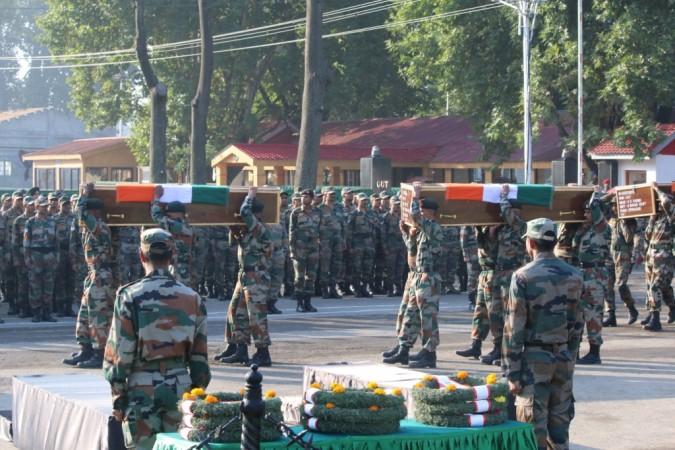
In the wake of the Uri terrorist attack, India's defence ministry has warned editors to share content with the Army for approval as a form of pre-censorship. The ministry stated that the media faltered in the reporting of the Uri attack.
"All contents relating to the Indian Army, irrespective of 'source' of inputs, and intended to be published, should be pre-verified from the offices of media centres in commands & corps HQ or from this office through your defence correspondents," the defence ministry said.
The ministry's response was in reference to a story in the Indian Express on 21 September that debunked the statements made by Lt Gen Ranbir Singh, director general of military operations (DGMO), to journalists a day earlier. According to the IE report, Lt Gen Singh said that the weapons recovered from the slain terrorists bore "Pakistani markings".
Writing in the article, the reporters noted:
Four Kalashnikov rifles used by the terrorists, and handed over by the military to investigators Monday, bore no markings or insignia of any kind, sources familiar with the ongoing investigation said. There were also no military markings on barrel-fired grenades destroyed by the Army Monday, or on launchers fitted on the Kalashnikovs.
Since the report was published, the defence ministry asserted that the DGMO never made this claim while giving out the formal press release. However, the IE report claims, there was no clarification or denial by the DGMO even after more than a day despite several media outlets having quoted him saying so.
As reported by the Wire, not only has the DGMO, media in the defence ministry has demanded the IE to "publish an errata and apology for having published a report full of falsehood" and also asked that henceforth media organisations must submit reports on the Army to be "pre-verified" by the relevant corps or command media office.
The demand by the defence ministry seems as unconventional restriction as it may violate the freedom of the press enshrined in the constitution.









!['Had denied Housefull franchise as they wanted me to wear a bikini': Tia Bajpai on turning down bold scripts [Exclusive]](https://data1.ibtimes.co.in/en/full/806605/had-denied-housefull-franchise-they-wanted-me-wear-bikini-tia-bajpai-turning-down-bold.png?w=220&h=138)



